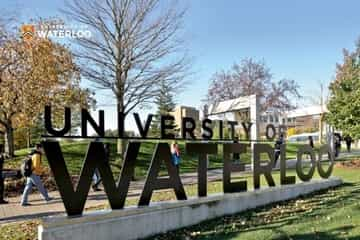Contact
Opening hours
Mon - Fri: 10:00 am - 06:00 pm
Sat-Sun: CLOSED
Sat-Sun: CLOSED

According to Statistics Canada every year more than 100,000 students come to Canada on Study Permits. Canada has highly reputable and one of the best education systems in the world. Canadian Colleges and Universities are among the top-rated Institutes of the world offering a wide range of subject areas at a moderate fee structure as compared to the USA, Australia & the United Kingdom. Canada has a truly cosmopolitan culture and is called the land of immigrants, a student studying in Canada has more chances to observe a multicultural, multiethnic environment as compared to the rest of the world.
Canada is an excellent choice for international students. There are a number of universities offering a variety of programs following a great education system. The cost of education is comparatively less to the United States. Canada is home to The University of Toronto, McGill University, University of British Columbia, University de Montréal, and the University of Alberta all of which are among the best universities in the world. Canada has been ranked as one of the most livable places among the top ten places to live in. With its diverse culture, most international students would experience a comfortable and accepting environment. In order to study in Canada, individuals would require a “study permit.” For studying in Canada students can either apply for a study permit through the regular Student Visa or apply for a study permit through Student Direct Stream (SDS). Usually, a study permit is to be applied before you enter Canada however in some cases you can apply for a study permit from within the country.
To be able to apply for a study permit Canada from within Canada the following conditions must be fulfilled:

In order to obtain a study permit from outside of Canada, individuals have two choices either apply online or file a paper application through the Visa Application Centre (VAC). kindly keep in mind that neither student direct stream (SDS) be applied from within Canada and nor it can be applied as the paper application, it must be applied from outside of Canada and online only. In order to apply online, either for a regular student visa or through SDS, one must upload all transcripts and educational degrees online and be able to make an online payment by a valid credit card.
Before applying for a study permit you must have an offer letter from a designated learning institute (DLI). You require a valid passport and travel documents. You must also show proof of finances for your study which includes tuition fees and living expenses. You must have a clean criminal record and show a police certificate. You must also be in good health and free from serious health issues. In order to secure a visa, one must be able to convince the immigration officer that he/she will leave Canada upon completion of one’s studies.
After choosing a proposed subject area that you want to study it is important to look into the schools that are offering what you’re looking for. It is important to know deadlines, eligibility for a program, and what type of degree you are looking for. Be sure to dig in to find out as much as information you can regarding the institute, you’re interested in. Lastly, you must know the location of the institution as Canada has many urban and suburban localities. You must choose whatever you are most comfortable in.


If you plan on studying in Canada approximately C$20,000 to C$30,000 would be enough to cover tuition and living expenses annually. Accommodation is an important consideration once you have decided where you will study. Many universities offer on-campus accommodation. They can be dorms, townhouses, apartments, etc. usually very close to the campus. This will save transportation costs and be an opportunity for international students to mix in and make new friends. The average cost for living on campus residences can vary from C$3,000 to C$7,000 annually.
Another option is to consider off-campus accommodation. There are a number of rental units available according to one’s budget. However, usually, It is very difficult for the student to afford an apartment alone so he/she may choose to share an apartment. Most apartments are unfurnished. Prices can vary from C$500 to C$1500 per month according to location.
Transportation costs will depend upon how close you are to your campus. If your campus is close you can walk or use a bike. In larger cities, you can use public transport which can be anything from a bus to subways to ferries. Monthly passes for ferries range from $80 to $110. International students in Canada must have health insurance. Medical coverage depends upon which province you will reside in and the length of your stay.

Many international students can take up a part-time job during their studies. They can work in retail, restaurants, grocery stores, etc. A minimum wage varies from province to province ranging from $10.96 to 14.50 per hour. Students interested to pursue an academic career can assist lectures or opt for teaching/research assistant fellowships.
In most cases, if international students in Canada are studying full time and have completed their courses may get their study permit extension, if they wish to enroll in any further course. They must meet the conditions of the proposed course and institutions. It is important to note if one wishes to extend a study permit in Canada, he/she needs to apply at least 30 days prior to expiring his/her current status.
Some study programs require students to do an internship. This is known as a co-op student or intern and requires the student to apply for a work permit along with his/her study permit. In order to be eligible for a co-op work permit the following are mandatory:

However, students cannot apply for the co-op permit if:
In these cases, a valid work permit would be required to work.
In order to apply for a co-op work permit, you must have an acceptance letter confirming the need for an internship to complete the program.
Many students have the opportunity to work on campus. These types of jobs do not require work permits; however, they have poor wages. Even English language students (ELS) can do such jobs. In order to be eligible for on-campus employment the following is necessary;
Students are also eligible to work off-campus as a volunteer for university-related jobs. In order to be eligible for off-campus employment the following is necessary:
Students are eligible to work up to 20 hours a week during semesters and 40 hours per week during breaks.
Canada is an excellent choice for working once you have finished your studies. There are many options for students who are successful in achieving a Canadian degree. Some options may be:
After settled employment, many individuals will have the opportunity to become permanent residents of Canada.
If in case you have achieved a Canadian diploma you have the option to apply for work experience through various postgraduate work programs that will obtain you a work permit allowing you to work as long as your studies commenced. In order to be eligible for such a grant, the following are mandatory:
Minimum 8 months of full-time studies required to be eligible for 8 months postgraduate work permit. The validity of a postgraduate work permit is normally proportional to the length of the program, a student who studied one-year post-secondary studies may qualify for a one-year postgraduate work permit. 02 (Two) year studies may be able to get you 03 (three) years’ work permit.
Do you want to learn more about study in Canada and/or about the study permit of Canada; The Visa Canada team can help you in choosing the right educational institute for you.
+1 647 294 6631 
 +1 647 794 7370
+1 647 794 7370 
info@TheVisaCanada.ca
Enter your email to subscribe to the Canada Immigration NEWSLETTER.